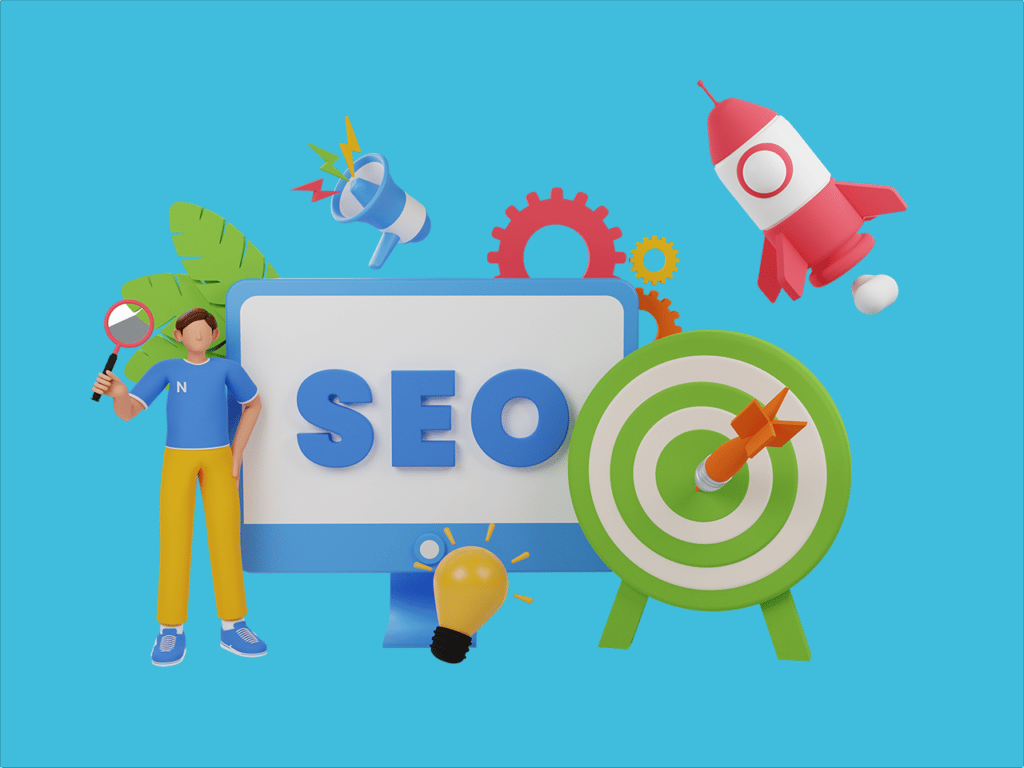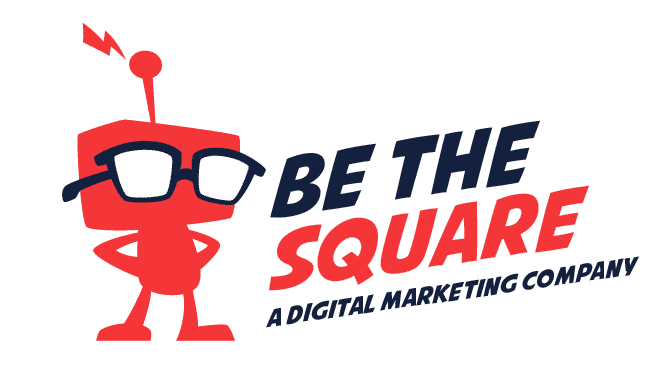What is SEO (search engine optimization)? Lets Get Into It!
Search engine optimization is the process of improving the visibility of a website or web page in a search engine’s unpaid results.
What is SEO? Search engines such as Google use algorithms to determine their rankings. In general, high-quality sites will receive better rankings than lower quality sites. For example, if you search for “Basketball Shoes” on Google, the first 10 websites that appear are likely to be legitimate businesses selling basketball shoes. A great tool to start researching your niche keywords is Google Keyword Planner.
For some insights into what Google is expecting from websites, read the Google Webmaster Guidelines.
READ: What is Local SEO / Search Engine Optimization?
Search engine optimization is the process of improving the quality and quantity of website traffic to a website or a web page from search engines.
What is SEO? Search engine optimization (SEO) is the process of improving the quality and quantity of website traffic to a website or a web page from search engines. SEO can also be referred to as “natural search engine optimization” since it involves techniques that do not require manipulation of any kind.
When done right, SEO will help you:
- Drive traffic to your site and increase sales;
- Improve brand awareness; and
- Establish high rankings on Google, Bing and other search engines.
When someone asks “What is SEO?” A great answer is – “SEO targets unpaid traffic (known as “natural” or “organic” results) rather than direct traffic or paid traffic.”
Paid traffic refers to a type of advertising in which you pay for the clicks on your ads. This is popularly known as PPC (pay per click). Paid traffic is one of the most common types of digital marketing, and it’s typically used by businesses who have specific goals in mind, such as selling products or signing up new users.

Organic search results are also called natural results because they appear as though they’ve been searched naturally—in other words, without trying to manipulate them. These organic results often show up at the top of search engine result pages (SERPs), but sometimes they can be found lower down on SERPs if there are many paid ads above them.
Organic search results are obtained when a user conducts a query that doesn’t include any keywords that were specifically designed by an advertiser. For example: If someone searches “football,” then an advertiser’s paid ad will appear at the top of their SERP; however, if someone searches “best football teams” instead—which includes specific keywords—then advertisers may not be able to compete with those terms due to limited budgets and limited access to advertisers’ data sets.
What is SEO? SEO can target different kinds of search, including image search, video search, academic search, news search, and industry-specific vertical search engines.
- Image Search. If you go to Google Images, you’ll see that it’s a search engine for images. This means that when someone wants to find a picture of something, they can do so through Google’s image results.
- Video Search. The same goes for video search – if you have a video of your mother singing or your dog doing tricks, you can upload it to YouTube and get more views on the platform itself or by having people share your videos on other platforms like Facebook or Twitter (social media platforms are also different types of search engines).
- Academic Search Engines. These are like regular search engines but they cater specifically to topics related to academics such as psychology journals and books on subjects like math problems with answers included in the text itself rather than just providing citations at the end where one might be able to find them online without paying any money upfront first!

As an Internet marketing strategy, SEO considers how search engines work, what people search for, the actual search terms typed into search engines and which search engines are preferred by their targeted audience.
What is SEO in terms of an Internet marketing strategy, SEO considers how search engines work, what people search for, the actual search terms typed into search engines and which search engines are preferred by their targeted audience. The better your site is optimized to appear in the organic (non-paid) search results of a given database, the more visitors you’ll get.
To optimize a website for organic search engine visibility, you have to use specific keywords on your site that other sites aren’t using yet. These are called long tail keywords because they’re more specific than just “blue widgets.”
Optimizing a website may involve editing its content and HTML and associated coding to both increase its relevance to specific keywords and to remove barriers to the indexing activities of search engines.
What is SEO? Optimizing a website may involve editing its content and HTML and associated coding to both increase its relevance to specific keywords and to remove barriers to the indexing activities of search engines.
There are three main areas of focus when optimizing a site for search engines:
- Content – Is the content of your website relevant, useful, and interesting? Does it answer all of your customers’ questions? Are there new topics you could cover that would be helpful? What parts do people tend to skip over or ignore? Think about these things as you optimize so that you can provide what people want from the site.
- Keywords – The keywords on your page should be placed in several locations throughout each page’s HTML code (called “on-page” optimization). You also want them used in titles, meta descriptions, headings, etc., where appropriate; but keep in mind that too many keywords will not only look spammy but also give search engines too little information about what is important on each page.
- Accessibility – Search engines can’t see what goes on behind their own web crawlers’ closed doors when they crawl a site; therefore, they rely on accessibility markers (such as breadcrumb trails) that indicate how deep into each section visitors have gone before leaving (or clicking back into another section).
It’s also important to check your website structure, load times and mobile-friendliness. A fantastic way of measuring your sites performance is by utilizing Mobile-Friendly Test by Google. It is also important to ensure your Google Business Profile is up to date and accurate.
Promoting a site to increase the number of backlinks or inbound links is another SEO tactic.
Backlinks are the links that point to your website from other websites. They’re a sign of popularity, trust, quality, relevance and authority.
When you’re creating backlinks for your site, it’s best to link out to high-quality relevant resources and build relationships with people who can mention you in their posts. This will help increase both traffic and rankings for your site over time.
What is SEO (A Quick FAQ Run Down)
What is SEO in simple words?
SEO is the practice of using specific strategies to improve your website’s position in search engines. This increases the number of people who can find you when they search for things related to your business.
SEO is also sometimes referred to as Search Engine Optimization (SEO) or “search engine marketing” (SEM).
Why is SEO important?
SEO is important for many reasons. First, it’s a way to make sure that your content is discoverable by the people who might be looking for it. Second, SEO helps you build a brand. Third, SEO can help you build an audience, which can lead to more sales and more customers.
How does SEO work?
SEO stands for search engine optimization. It’s a way to improve the ranking of your website in search engines, so that when people search for something related to your business, they find you.
Search engines like Google use algorithms to determine what content gets displayed first when people search for things. By optimizing your site, you can influence those algorithms so that your site appears higher in the results.
There are many different ways to do this, but there are two main factors: the content on your site and how well it’s optimized.
How long does it take for SEO to work?
It’s hard to say exactly how long it will take for your SEO to start working, because there are so many factors in play. Generally speaking, if you’re ranking well in Google right away, it can take as little as a few weeks—but if you’re starting from scratch, it may take months.
What is the most important factor in SEO marketing?
We think the most important factor in SEO marketing is relevant content.
Content that is relevant to a user’s search query will be more likely to rank in search results, which means that it will likely get more traffic and engagement.
Conclusion
Now that we’ve defined what is SEO and how it works, there are a few things you can do to start improving your website. First of all, check out our guide on how to do some basic page optimizations. You should also look at the top search engine optimization tips from Moz and HubSpot.
Additionally, if you want to learn more about these strategies or how they work in-depth, check out their guides on this topic as well! Why not start with my blog: The 12 Best SEO Techniques To Increase Your Website Traffic!
You can also look at our SEO Services if you want to give your business a boost!





